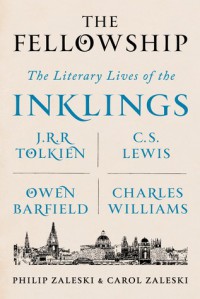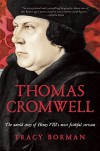SusannaG - Confessions of a Crazy Cat Lady
Just another GR refugee. Other than that, I had a stroke in 2004, and read almost anything I can get my hands on, though I have a particular weakness for history, mystery, and historical fiction.
Currently reading
The Fellowship: The Literary Lives of the Inklings

This is an interesting study of the Inklings, a group of friends (all male: women were not wanted, even their dearest female friends, such as Dorothy L. Sayers) from the Oxford area, who from the early 1930s to the end of the 40s met on Tuesday mornings, for a drink and a smoke at the pub known as "the bird and baby" (The Eagle and Child), and on Thursday evenings, mostly at C.S. Lewis' place, to read each other their active work.
The most prominent take up the most space here. C.S. Lewis must be worth nearly half, J.R.R. Tolkien about a third, and the remainder mostly occupied by Owen Barfield and Charles Williams. Lewis' older brother, "Warnie" Lewis, also a member, gets a good amount of space due largely to his family status. Other members, such as Hugo Dyson, Dr. Robert Havard, and so forth, come and go.
The requirement for an Inkling? Never set down in the rules (as far as anyone knows), but generally a member had to be male, Christian (*very* broadly speaking), actively writing or researching (whether professionally or otherwise; the "otherwise" included army officers, doctors, and lawyers), and probably a fan of either fantasy or the literature of northern Europe. Works read out at Inkling meetings ranged from children's literature such as The Hobbit to novels for adults (The Lord of the Rings or Out of the Silent Planet, for example), and non-fiction (The Magnificent Century, and other volumes of Warnie's history of the France of Louis XIV, for example). Not all of them loved all the work read to them; Hugo Dyson loathed The Lord of the Rings and his reaction to seeing Tolkien arrive with a large manuscript under his arm was to scream "Not more *@#&)&% Elves!" (He would finally succeed in getting The Lord of the Rings banned as a meeting topic.)
Also getting a great deal of space (and perhaps naturally, considering the strength of their beliefs, as well as the background of the authors of this book) are their religious views. Tolkien was a devout Catholic, and while loathing allegory (he said as much to anyone who asked), his world view was a large part of all his fiction. C.S. Lewis started as an Atheist, and spent the second half of the 1920s arguing over Christianity in "The Great War" with Owen Barfield. This ended with Lewis' conversion to "mere Christianity," and his long history as a Christian apologist.
It is hard for me to say which Inkling had the odder religious beliefs, Barfield or Charles Williams. Barfield was an Anthroposophist, a believer in Atlantis, and a follower of Rudoph Steiner, a German mystic (formerly himself a follower of Madame Blavatsky). He became an attorney, but continued to write books about the nature of poetry, word usage, and more mystical material, until he retired in the 1950s. In the 1960s he found a second life as a lecturer and guru in the United States, and only died in the late 1990s.
If Barfield was the last to die, Charles Williams had been the first, in 1945. He was also a mystic, but a Rosicrucian, and had a number of influences on, in particular, C.S. Lewis. (If you've read That Hideous Strength, one reason it's such a strange novel is that there's a great deal of Charles Williams' influence in it.) If anyone has heard of him these days, it's probably because of his friends, Lewis and Tolkien, and the book of essays they produced in his honor after his death, Essays Presented to Charles Williams, which includes important essays from both Lewis and Tolkien.
Tolkien comes across much as I would expect (I've read a decent amount about him in the past), but Lewis is the interesting and strange picture of, on the one hand, an extremely intelligent man, a fine scholar, and a good friend, but also, I regret to say, a sometime intellectual bully, a misogynist, and casual anti-Semite. Barfield and Williams were utterly new territory to me.
Interesting and well worth reading.
















 21
21
 2
2